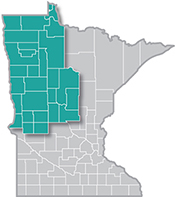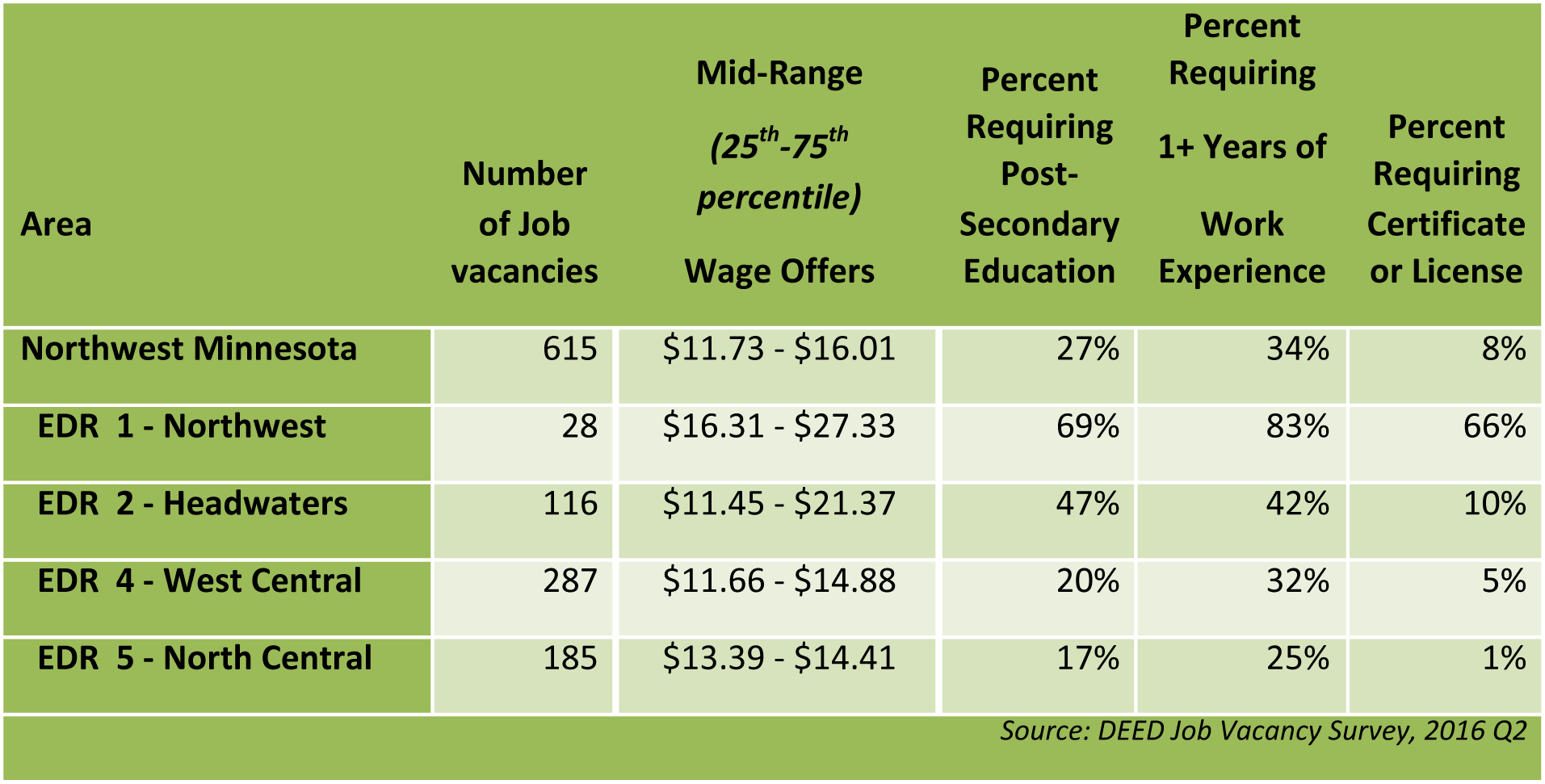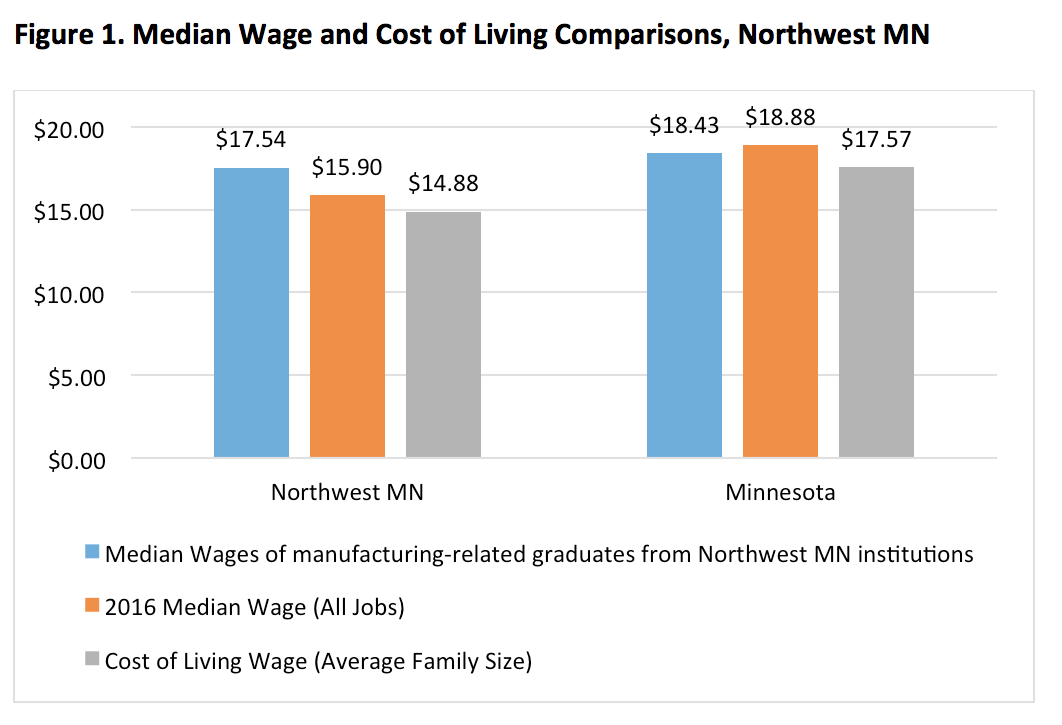 The presence of such industry powerhouses as Polaris, Arctic Cat and New Flyer make Northwest Minnesota a hub of transportation equipment manufacturing.
The presence of such industry powerhouses as Polaris, Arctic Cat and New Flyer make Northwest Minnesota a hub of transportation equipment manufacturing.
From wheat and potatoes to soybeans and sugar beets, the region is a major producer and processor of food staples and specialty agricultural products.
Want the freshest data delivered by email? Subscribe to our regional newsletters.
10/14/2016 12:04:56 PM
Chet Bodin
The manufacturing industry is always hiring – especially in Northwest Minnesota, where manufacturing ranks second in employment and total wages paid among all industries. Results from DEED’s latest Job Vacancy Survey, which surveys over 10,000 employers statewide, estimates Northwest Minnesota had more than 600 job openings in manufacturing through the second quarter of 2016.
From the 25th to the 75th percentiles, wage offers in manufacturing ranged from $11.73 to $16.01, but varied greatly by economic development region and the percentage of job vacancies requiring post-secondary education and/or work experience.
Manufacturers in “EDR 1 – Northwest” and “EDR 2 – Headwaters” were looking to hire workers with post-secondary education and/or work experience more often, and also had much higher wage offers for new jobs. The mid-range wage offers in those EDRs extended above $20 per hour. This is great news for those looking for a post-secondary program that will help them find a good paying local job after they graduate (see Table 1).

Manufacturers have good reasons to look for employees with post-secondary training, and job seekers have good reasons to invest in post-secondary training. From 2010-2013, the five Minnesota State (formerly known as MnSCU) colleges offering two-year degrees in Northwest Minnesota graduated almost 950 students in manufacturing-related programs, including engineering technologies and precision production. Almost 60 percent of recent graduates found work in Northwest Minnesota, suggesting that local graduates are willing to stay in the region, and local employers are noticing. The median wage two years after graduating for these workers was $17.54 per hour.
However, there has still been some incentive for local graduates from manufacturing-related programs to look for work outside of Northwest Minnesota. Overall, graduates from these programs (regardless of work location) had a median wage of $18.43 after two years in the workforce, meaning workers who find jobs outside the region are earning higher wages, especially in the Twin Cities metro area.
Despite this pay gap, there are many reasons for regional graduates to stay. Besides the abundance of recreational and outdoor activities, those graduates who decide to stay and work for manufacturers in Northwest Minnesota do much better than average. Their median wage two years after graduating ($17.54/hour) exceeds the regional median hourly wage for all jobs ($15.90/hour) by $1.64, a difference of $3,411 over the course of a full-time work year (see Figure 1 below).

On the flip side, manufacturing-related graduates who leave the region might make more per hour ($18.43/hour), but that does not exceed the statewide median wage for all jobs ($18.88/hour). The data indicates that skilled manufacturing employees are very important to employers in Northwest Minnesota. In fact, manufacturing was the only regional industry in Northwest Minnesota to employ more than 20,000 workers and pay over $45,000 in annual wages per worker, making it a popular and lucrative line of work.
Local graduates who decide to stay and work in Northwest Minnesota also benefit from a significant cost of living difference. The average family with one child and two adults working a combined 60 hours per week would need to make $14.88 an hour in Northwest Minnesota – $2.69 an hour less than the state average – to meet basic cost of living standards. That amounts to over $8,000 a year that a family can save or use for other expenses. See DEED’s Cost-of-Living tool for more information.
Between this cost-of-living benefit, excellent job placement, high regional value and current demand for their skills, graduates of manufacturing-related training programs have ample reason to stay in Northwest Minnesota.
Contact Chet Bodin.